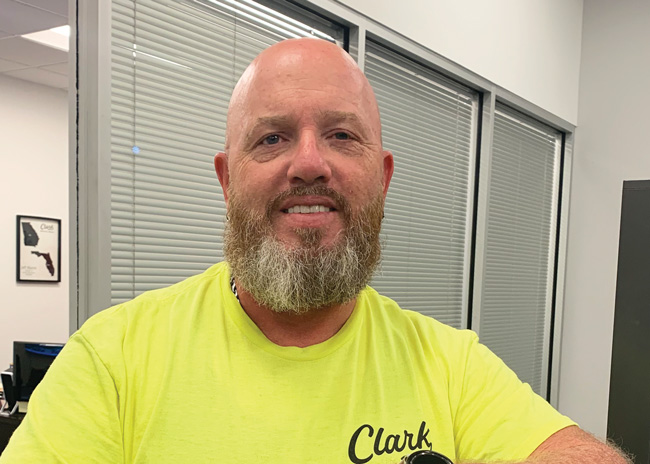Warren Devaney began his career in the service industry in the mid-‘90s and has been with Clark Service Group for nine years. He is a field supervisor – hot side and is based in Tampa, Fla. In his current capacity, Devaney handles repairs, installs and more.
 Warren DevaneyQ: You are an expert in combi oven repair. What’s one thing operators should do to extend the service life of their combi ovens?
Warren DevaneyQ: You are an expert in combi oven repair. What’s one thing operators should do to extend the service life of their combi ovens?
A: A combi oven is an example of how versatile equipment has become. Operators can use combi ovens as an oven or as a steamer or both, which means you can cook anything in there. It’s an example of one unit that can do a lot more and it eliminates the need for three pieces of equipment. The one thing that operators should do to maintain this equipment is clean it. The more you clean the equipment, the more you’re aware of what’s going on with it. It needs periodic deliming and descaling. You want to take care of that before lime buildup becomes a problem with the equipment. It’s like if you’re a coffee drinker and have a coffee maker, you want to run vinegar through it to clean it.
Q: How do the maintenance requirements differ between gas and electric cooking equipment?
A: Electric equipment doesn’t require fuel pressure and it doesn’t require a particular volume of oxygen. It just needs the energy supplied to generate heat or cool the unit. A gas burner is made of metal that won’t bend very easily. It’s more important for everything to be perfectly lined up because a gas burner has little holes where the fuel and air come out. With electric cooking equipment, you don’t want things to contact the heating element and you want to prevent direct contact with that heating element. You don’t have pilots on electric that you have to be concerned about. But they still have to be cleaned.
Q: When severe weather occurs, what steps should operators take to secure and protect their equipment prior to the storm? And what steps should they take to safely restart the equipment after the storm?
A: Electrical equipment should be deenergized as part of the storm prep. If there is more than one hot lead, some components can be affected if the power isn’t restored or completely goes out. You also want to take the steps to prevent water from getting into electric or gas equipment in the event flooding occurs. If the water gets in the equipment, it will likely have to be replaced and won’t be recoverable. If you have product in the refrigerator, you need to keep that equipment running. After a storm, you want to inspect the equipment and make sure these items were not affected by weather or even service issues such as utility spikes or partial outages. You want to inspect the equipment to prevent damage and any potential harm to users.



